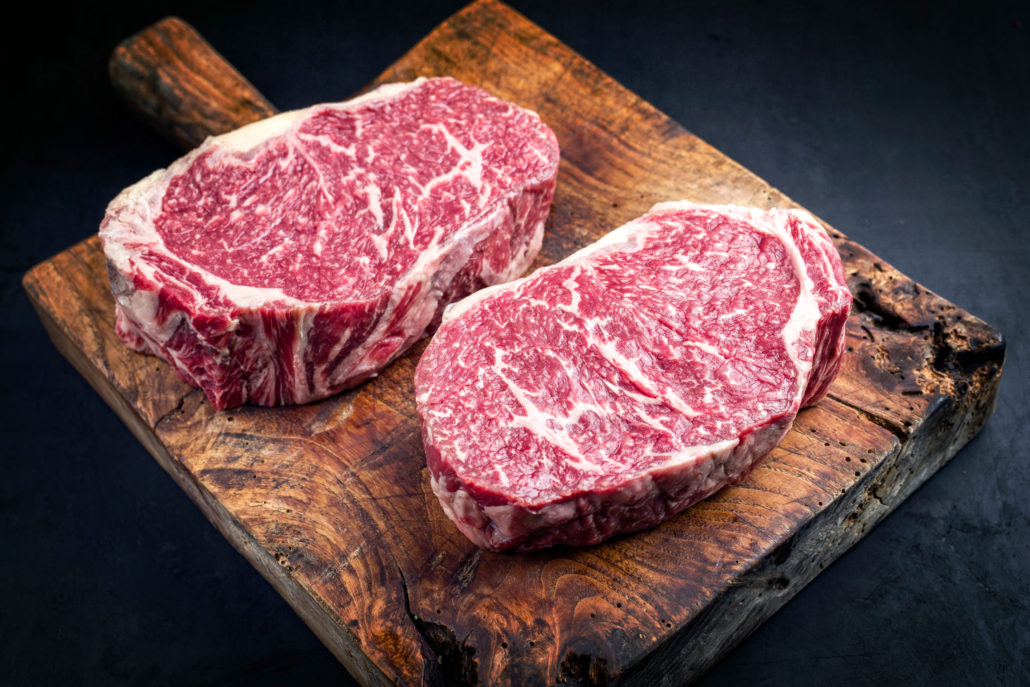We include products in articles we think are useful for our readers. If you buy products or services through links on our website, we may earn a small commission.
9 Intermittent Fasting Side Effects and Easy Solutions

Intermittent fasting, or “feasting” as Dr. Kiltz more accurately calls it, means cycling between periods of eating and caloric restriction. This way of eating offers numerous powerful benefits but can result in some unwanted side effects.
The good news is that for most people, intermittent fasting side effects are both temporary and easy to overcome.
Table of Contents
Benefits of Intermittent Fasting
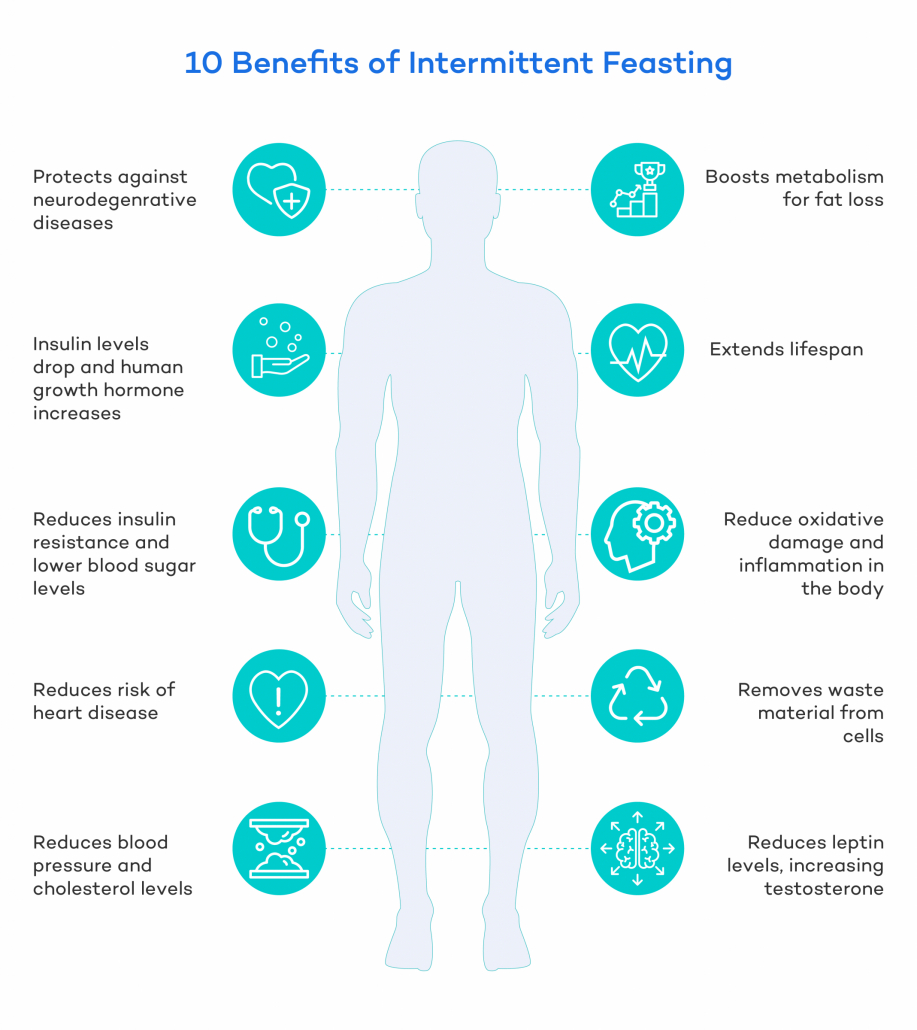
There are many types of intermittent fasting. Each can be viewed as a way of realigning our physiology with evolutionary eating patterns.
Our carnivorous hunter-gatherer ancestors cycled between periods of eating freshly hunted meat and fasting between successful hunts.
Adopting the eating habits that our ancestors had for nearly 2 millions years of evolution helps us reclaim our metabolic health and ward off the “diseases of civilization.” These include diabetes, heart disease, autoimmune disorders, osteoporosis, and many cancers.
Clinical research links intermittent feasting with numerous health benefits, including
- Reduction in heart disease risk factors
- Reduced inflammation and marker of oxidative stress
- Stimulates production of BDNF–”miracle grow for you brain”
- Lower risk of severe symptoms from COVID-19
- Reduces excess body weight
- Improves insulin sensitivity
For some people, intermittent fasting side effects can be obstacles to these benefits. So let’s look at what these challenges are and how to overcome them.
1. Hunger and cravings

One of the most common intermittent fasting side effects is hunger. No big surprise.
There are two main reasons why hunger and cravings occur during intermittent fasting: carb addiction and not eating enough calories.
Carb Addiction

Most of us coming from the standard American diet are used to three high-carb meals a day with sugary snacks in between.
We’ve become accustomed to this constant flood of carbs. Cutting off the pipeline of sugar even for a portion of our waking hours can stimulate cravings associated with carb addiction.
Solutions
One solution is simply to stick with it.
Studies show that hunger symptoms usually occur during the first few days when transitioning to IF. Stick with it and your body will adjust it’s metabolism to your new eating frequency.
You can smooth your transition by combining IF with a high-fat low-carb diet.
High-fat low-carb foods are extremely satiating. This means they keep you feeling fuller for longer while providing the building blocks (fatty acids) for ketone (energy) production.
Consume more calories
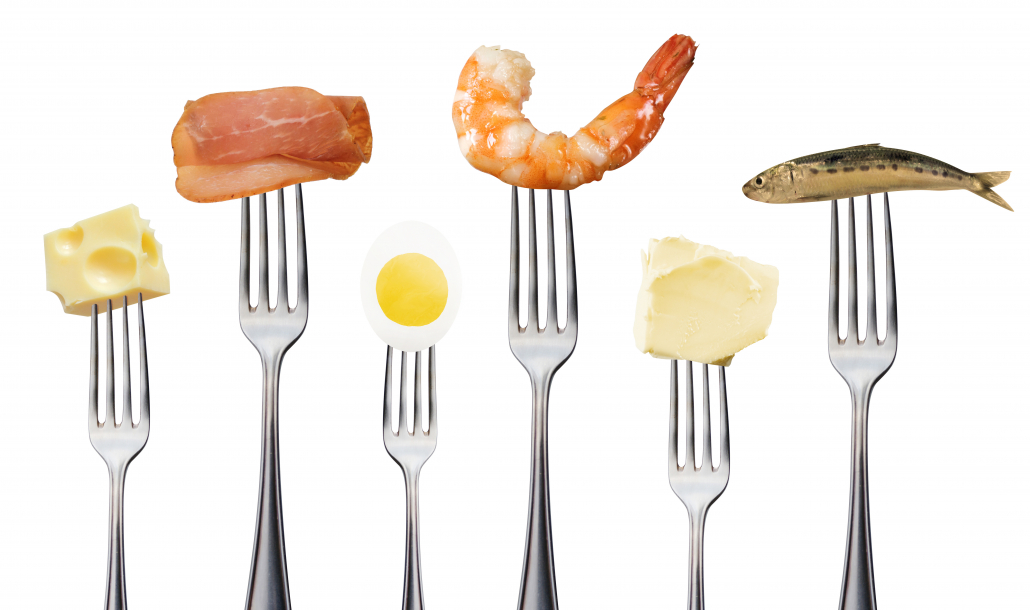
When switching from constantly eating to eating seldomly, it is common to inadvertently restrict your caloric intake.
Keep in mind that intermittent fasting is not necessarily a calorie-restricting diet.
The most effective and ancestrally aligned approach to intermittent fasting is to restrict your eating times, then to “feast” on fatty whole foods like ribeye steak, butter, eggs, and other nourishing whole foods you would eat on keto.
Cutting carbs and boosting your nutrient-dense food intake will reset your metabolism and microbiome. Your body will learn to expect and process fat into much more sustainable/stable energy.
2. Lightheadedness and Headaches
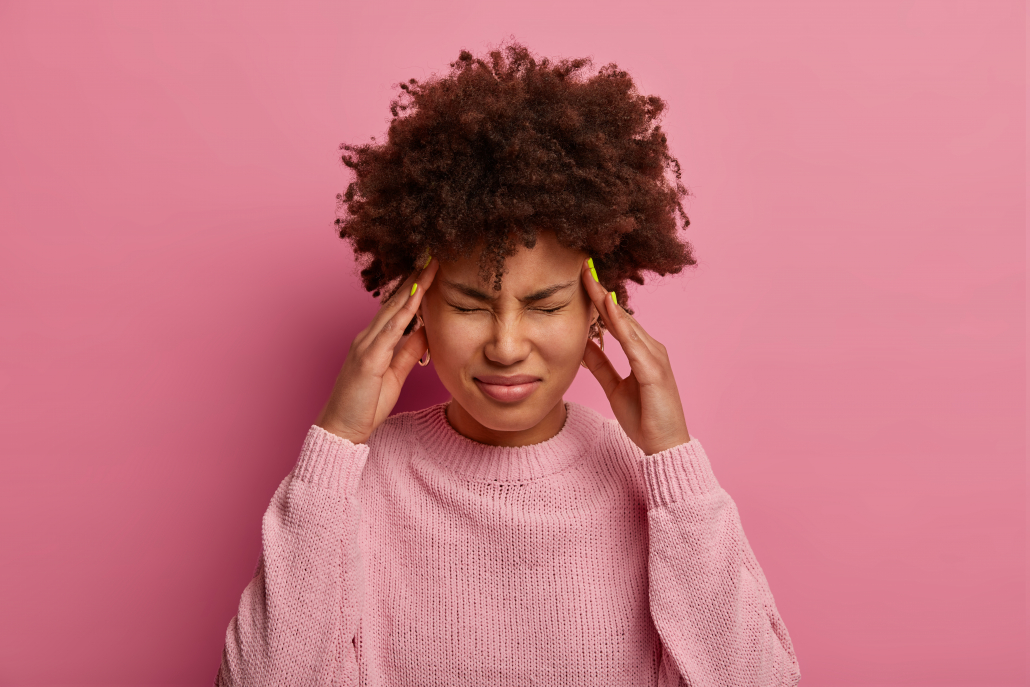
Mild headaches and lightheadedness are common intermittent fasting side effects that usually occur during the first few transitional days.
These side effects are likely due to low blood sugar and withdrawal from caffeine. Like sugar, most Americans rely on coffee and tea to boost energy throughout the day.
Solutions
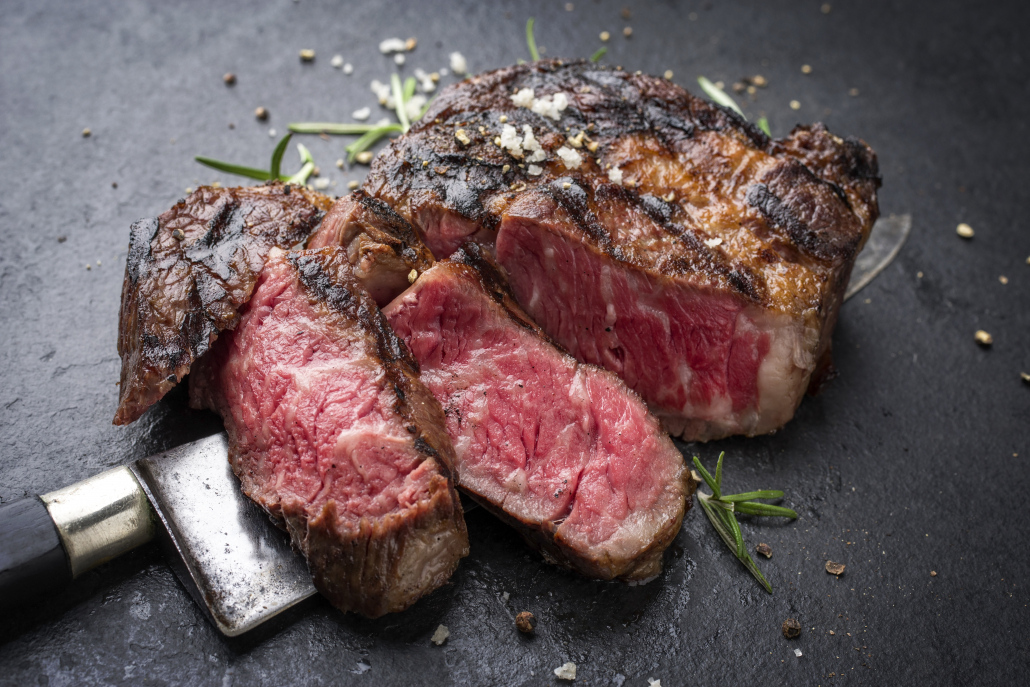
Eating more high-fat, nutrient-dense and satiating foods while cutting carbs will contribute to more stable physical and mental energy.
On a high-fat low-carb diet you will likely have less reliance on caffeine. But you can always enjoy unsweetened tea and coffee. Black coffee does not break a fast.
It is also likely that your headaches and lightheadedness are due to dehydration and electrolyte imbalances.
When fasting, your body will flush water and electrolytes as it unlocks glycogen (stored carbohydrates) in your muscle tissue.
It is crucial to replace fluids and electrolytes by drinking plenty of water and liberally salting your food.
3. Constipation, Diarrhea, Nausea, Bloating
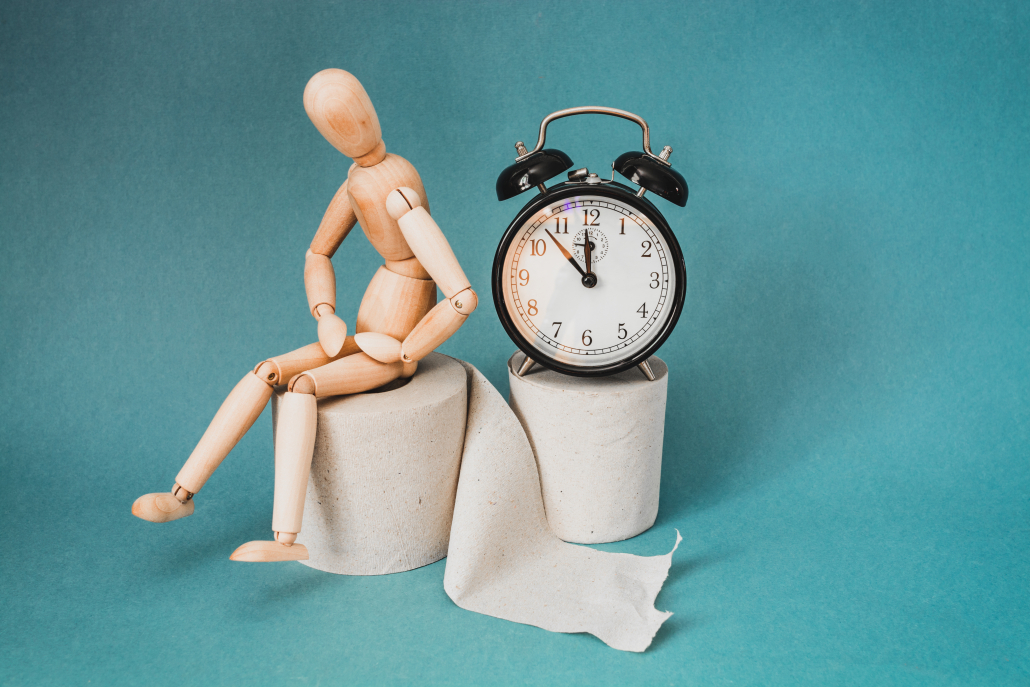
Constipation, diarrhea, nausea, and bloating are all common digestive symptoms that can occur when transitioning to intermittent fasting.
These intermittent fasting side effects are most often due to two factors: (1) dehydration and electrolyte imbalances. (2) Dietary changes associated with intermittent fasting.
As mentioned above, when intermittent fasting, your body flushes both water and electrolytes. Flushing is more pronounced on more intensive fasts like OMAD (one meal a day) and 20-hour fasts.
Many people combine intermittent fasting with keto and a carnivore diet. These dramatic dietary changes can take some time for your digestive enzymes to catch up with.
Solutions
Drink water and liberally salt your food, eat more fat, and stick with it.
If you’re doing all the above and the symptoms persist, you can try bile supplements. You may also want to experiment with eliminating possible irritants like nuts, diary, and eggs.
Click here for a full guide to keto diet constipation and here for a guide to keto diarrhea.
4. Mood Swings and Irritability

Cutting off the constant sugar supply can trigger withdrawal symptoms that include mood swings, irritability, anxiety, and difficulty concentrating.
One study on 52 women found that they were significantly more irritable during their 18-hour fasting windows. (10) Interestingly, their irritability coincided with a greater sense of achievement, self-control, and personal pride at the end of their fasting periods.
Solutions
At the risk of sounding like a broken record, the key to overcoming these intermittent fasting side effects is to consume more satiating high-fat foods.
If you’re satiated, you’re not hungry and you’re not irritable. Fasting/feasting isn’t about starving, it’s about giving your body time to rest, digest, and regenerate between fulfilling meals.
5. Fatigue
Fatigue is another potential side effect that most often occurs when transitioning to IF from a standard high-carb diet.
Studies show that fatigue can also occur when not consuming enough calories and when consuming a high-carb diet without enough quality high-fat foods.
Solutions
The key to overcoming fatigue is to stick with your IF program and boost your high-fat foods like fatty keto meats and cheeses.
The benefits of sticking with IF and reformulating from a high-carb to a high-fat diet are evident in the experiences of steady mental energy that many intermittent feasters report.
Studies confirm that sticking with IF can pay off in reduced fatigue once your body becomes adapted.
6. Bad breath

Bad breath while fasting can occur due to an increase of acetone, a reduction of salivary flow, dehydration, and changes/die-offs in your microbiota.
Also known as “keto breath” or “nail polish breath,” increased breathalyzed acetone occurs when your body increases fat metabolism as a result of carb restriction.
Fat is metabolized into energy molecules called ketones–one of which is acetone. Smelling it on your breath is usually the first sign of entering ketosis. The smell goes away once your body adjusts to a more efficient production and use of ketones.
Solutions
Good oral hygiene, drinking plenty of water, salting food liberally, and a little bit of patience are usually all you need to tame the dragon.
7. Poor Sleep
Studies show that sleep disturbances may be among the most common intermittent fasting side effects.
One study found that trouble falling and staying asleep can affect up to 15% of intermittent fasters.
Curiously, numerous other studies found no association between intermittent fasting and sleep disturbances.
It’s hard to make heads or tails of these mixed findings.
if you’re having trouble sleeping while intermittent fasting, it’s likely due to the same root issues as most other side effects: sugar cravings, hunger pangs, dehydration, and changes to your microbiota.
Solutions

Drink more water, salt your food liberally, boost your nutrients with superfoods, and balance your energy levels with low-intensity exercises like walking, cycling, and swimming.
If your sleep issues are stress and anxiety related, try these proven interventions:
- Simple breathing techniques for anxiety
- Mindfulness meditation
- gratitude practices
- Yoga nidra full body relaxation
- bedtime yoga
- Positive affirmations for anxiety
Studies show that eating more meat can reduce anxiety and support mental health.
8. Dehydration
As mentioned earlier, when transitioning to intermittent fasting a common side effect is flushing water and electrolytes through urine. This is called diuresis, and it’s totally normal.
The dehydrating effects of diuresis are often combined with people simply forgetting to drink water–since many people drink only with meals.
Additionally, people practicing intermittent fasting may forget to drink or may not drink enough. This may be especially common when you’re first beginning an intermittent fasting regimen.
Solutions
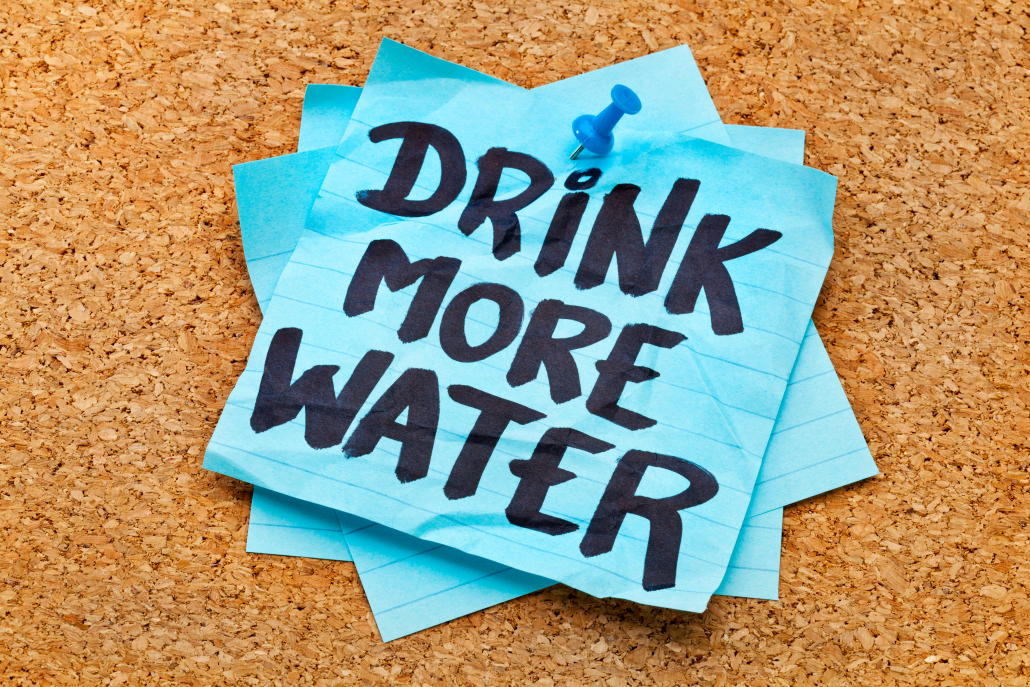
Drink water throughout the day, liberally salt your foods, and add in electrolytes is you’re having trouble staying hydrated.
9. Malnutrition
A poorly formulated IF diet that’s high in carbs and/or processed foods will lead to malnutrition. Longer-term fasting protocols without fully replenishing nutrients can also result in malnutrition.
It is important to remember that Intermittent fasting is not about cutting calories, fat, or food in general–it’s about timing your eating to optimize your metabolic health.
Solutions

Consume nutrient-dense high-fat whole foods. Cut processed foods. And formulate your meals to meet your nutrient goals.
Food to Eat While Intermittent Fasting
Center a well-formulated intermittent fasting meal plan around these foods:
- Red meat (grass-fed and pasture-raised when possible)
- organ meats
- Eggs
- Butter
- Tallow
- Low-carb yogurt
- Bone broth
- Oysters, Salmon roe fatty fish, and other seafood
You can choose to supplement your diet with small quantities of:
- Low-carb fruit like berries
- Properly prepared low-toxin and low-carb vegetables
Click here to explore a full intermittent fasting meal plan.
Who Should Avoid Intermittent Fasting?
Intermittent fasting/feasting is healthy for most people.
However, some people are at greater risk for adverse side effects, including 23:
- People with eating disorders
- Those who are pregnant or breastfeeding
- People who have trouble gaining and maintaining healthy body weight
Intermittent fasting may also not be right for you if you experience prolonged side effects despite the solutions suggested above.
If your side effects persist for more than a few weeks, seek the advice of a healthcare professional well-versed in intermittent fasting. You can find knowledgeable professionals here.
Intermittent Fasting Side Effects: The Takeaway
When practiced alongside a well-formulated intermittent fasting meal plan, IF has been shown to offer numerous health benefits.
However, the transition away from the chronically high-carb intake of a standard Western diet can result in side effects including:
- Hunger
- Lightheadedness and headaches
- Digestive issues
- Mood swings
- Fatigue
- Bad breath
- Poor sleep
- Dehydration
Fortunately, each of these side effects is usually temporary and effectively overcome by drinking more water, replenishing electrolytes, and consuming a well-formulated meal plan centered on ultra-satiating high-fat whole foods.














